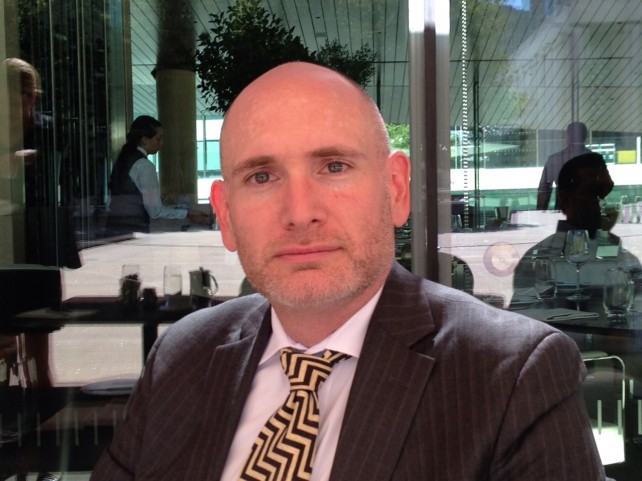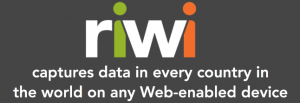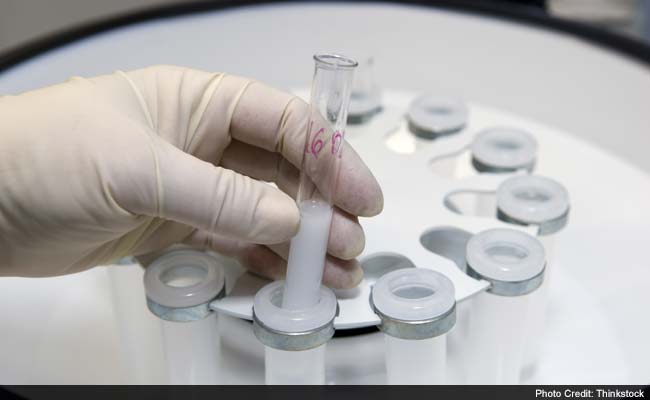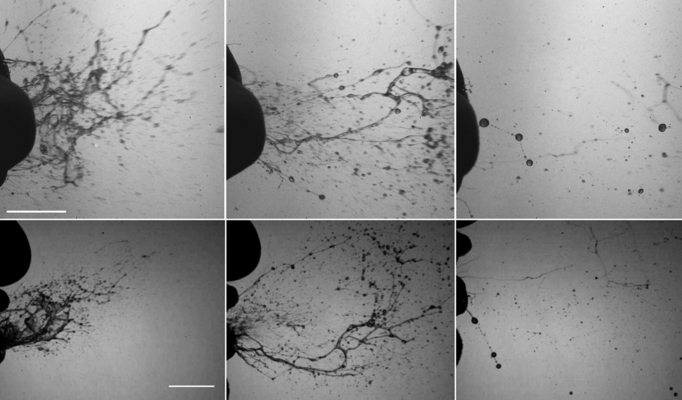
Neil Seeman is the founder of RIWI Corp., a global survey technology and risk measurement company. He took on the role of its Chief Executive Officer as the organization grew. Prior to conceptualizing RIWI Corp., he was the founder and Executive Director of the Innovation Cell at Massey College, in the University of Toronto, where Neil is a Senior Fellow and teaches on knowledge transfer and the Web. He is on Faculty at the Institute of Health Policy, Management and Evaluation in the Dalla Lana School of Public Health. To add to his repertoire, Neil is the inventor of the patent for RDIT, acquired by RIWI Corp., and first used by him for government-commissioned pandemic surveillance research in 2009-2010.
Sounds like a really tough call, but how does RIWI rapidly capture consumer and citizen opinion anywhere in the world?
RIWI is the only scientifically validated global random sampling engine in the world: Our platform engages real, random citizens who otherwise would mostly not answer questions or be reachable. The vast majority of RIWI survey responders are non-habitual survey-takers. They are real people and are a mirror of the country population as a function of Internet usage. The RIWI survey and sentiment method employs Random Domain Intercept Technology (RDIT™), a method invented and patented by RIWI Corp. Web users often make mistakes when navigating the Web by incorrectly typing a non-trademarked Internet domain name using any country code or top-level domain name. When this happens, users will potentially encounter an opt-in RIWI survey. For any study, RIWI uses proprietary algorithms allowing access to hundreds of thousands (or more) of exposures to non-trademarked websites rotating in real time through multiple geo-location software algorithms. Respondents are only able to answer a survey or question from a specific IP address once.
Talk to us about founding RIWI, what was your vision and what were you hoping to achieve
My vision was to create the most reliable method of gathering random opinions from anywhere in the world from people who are otherwise unengaged and do not typically provide opinions. My vision was to democratize public opinion and to engage everyone on the planet who is active on the Internet as potential respondents. In this process, my vision was to introduce randomness and global data capture into online data collection, enabling Fortune 1,000 companies, governments and civil society organizations to obtain otherwise unobtainable information, such as true sentiment across Cuba toward the opening of commercial relations with the United States. This is especially important in international security, where, for example, it is vital to understand changing sentiment among local populations toward oppressive regimes.
You are the inventor of the patent for RDIT. What exactly does this stand for, and how was it first used effectively for the government-commissioned pandemic surveillance research in 2009-2010? Care to give us a case study?
RDIT stands for Random Domain Intercept Technology, the Internet version of Random Digit Dialing for the Web-enabled world. I filed for the patents for RDIT in 2007. After that, in conjunction with the Ministry of Health and Long-Term Care in Ontario, I founded a research unit, the Health Strategy Innovation Cell, under the auspices of Massey College in the University of Toronto. Our work at that time at the Innovation Cell was to evaluate different online tools to empower patients in the healthcare system. When H1N1 broke out, RDIT was the ideal solution to understanding what random populations everywhere in the world felt about the safety of the flu vaccine and the degree to which different populations understood hygiene safety precautions such as coughing into your sleeve to protect against transmission. Other methods of collecting changing patterns of transmission, such as fludemiology, were not effective in H1N1 since the symptoms changed frequently and were not well understood. Our data were published showing that many groups were concerned about the safety of the vaccine. We then used RDIT around the world as a way of helping governments understand where public communications around the truth of the virus needed to be targeted. We further applied RDIT to understand the degree to which different populations felt the measles, mumps and rubella vaccine was causing autism in children. Since full-scale commercialization in 2012, RIWI’s systems and cloud-based software have been used by multiple leading civil society organizations and Fortune 1,000 corporations and RIWI has conducted over 10 million citizen interviews in over 190 countries and in more than 30 languages.

Author, researcher, founder, and lecturer—you have a very well-rounded personality. Which of these roles do you particularly enjoy, and do you see one in collaboration with the other?
I am an accidental entrepreneur, driven by curiosity and am intensely aware of the limits of my knowledge. I most enjoy the role of founder, which I feel is similar to the historic notion of a scholar-entrepreneur. Only in the role of founder are you intellectually unconstrained and subject to the market forces of whether your ideas are whacky or valuable. As a founder you can productize your vision and meet real business or social needs. Even if your ideas are eccentric in their infancy, and the best ones usually are in their early incarnations, you can bring along with you a team of superstars to mould the idea into something tangible, meaningful and doable.
You were also the founder and Executive Director at the Innovation Cell at Massey College at the University of Toronto. Tell us a little bit about the tenure there…
The Innovation Cell, in conjunction with the Ministry of Health and Long-Term Care in Ontario, was team of student researchers tasked with conducting globally recognized research and Web products in the real-time Web – methods to capture self-reported Web data to improve health system accountability and disease management, with an early focus on pandemic surveillance and drug safety surveillance. The Innovation Cell worked with the Ontario Ministry of Health, The Change Foundation, the Health Council of Canada, IBM, Healthy Minds Canada, Universities, Longwoods Publishing, NGOs and philanthropists, Fortune 100 companies, governments, and hospitals. Among the Innovation Cell’s accomplishments included the first online best practices portal for social media in health care (in partnership with CAMH and Providence Healthcare); four books, including a practice guide for the use of social media in nursing; and the Global Accelerator Award, given to initiatives that Web analytics reveal to be improving patient care. The Cell was described by Longwoods Publishing, the global academic publishing company, as: “a discombobulated group of thinkers who break barriers only to find ideas that seed invention and improvement”.
Knowledge transfer and the web, in today’s day and age everyone thinks that they know everything about the internet. Would you care to differ, and tell us what we may not know in simple layman terms?
Anyone who says he or she is an expert on the Web is a con-artist — even if you are under 20. People in their forties may not use Reddit or Instagram or even Facebook, but we know a lot about the historic nature of the Web, the earliest portals to the Web, and why certain things did and did not work in Web 1.0 in the early to mid-90s. Understanding how cognizance passes over the Internet, across oceans and continents, and then wins uptake and understanding among Web users around the world — especially in healthcare promotion and illness prevention, my area of focus — changes as new tools and techniques emerge. Knowledge transfer leverages and insights from a wide diversity of disciplines, including ‘innovations’ like social marketing or font stylings in paint and print were actually well thought out, and conceivable before the Web emerged in the 90s as a game-changing force.
You are also on the Faculty at the Institute of Health Policy, Management and Evaluation in the Dalla Lana School of Public Health. What exactly does this role entail?
This role involves teaching, research and public service. Specifically, it means lecturing on knowledge transfer on the Web, serving on graduate thesis committees and mentoring students in their internships and placements. In terms of research, it involves supporting Big Data analytics on research pertaining to artificial intelligence and its applications to health care management. In terms of service, it means public lectures and academic papers.
You’ve been the angel investor and advisor to many web start-ups. What attracts you to these entities, and have there been any success stories in terms of scaling-up
Many of the companies to which I have been an advisor or investor before their public listing have frankly either sputtered or shuttered. But one of them took off like a rocket in terms of success – J2 Global Communications -founded in December 1995 as JFAX. I remember meeting the founders, one rock star and one former manager of the Beach Boys, in a basement apartment in SoHo in 1996. I knew they were onto something big; I just had no idea how BIG! But currently J2 has a market cap of $3 billion on NASDAQ.
Where do you envision RIWI in the next 5 years?
RIWI currently measures the views of consumers or citizens in every country and territory in the world – one million people at a time. As the Internet-enabled world grows, so will our organization in terms of scale and power. We will likely move more predominantly into the realm of predictive analytics, concentrating in our areas of data collection expertise – international risk, global health, and global public citizen engagement. We will continue to focus on hiring the very best people to serve our mission and to expand our client base globally, and we will keep on seeking to build new value for our clients and investors around the world. Above all, we will keep working extraordinarily hard and remain creative and curious on how to obtain otherwise unattainable business insights through online data collection and analysis.
Jude Paul Fernandes / jude@thesouthasiannews.com


 South Asian News E-Paper
South Asian News E-Paper Punjabi News E-Paper
Punjabi News E-Paper

















